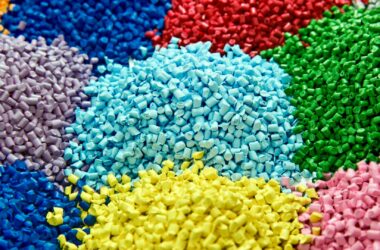The pharmaceutical industry relies heavily on automation to streamline production processes and ensure product quality. One crucial piece of equipment in pharmaceutical manufacturing is the automatic capsule loader. This sophisticated machine automates the process of filling capsules with powders or granules, enhancing efficiency and precision while reducing the risk of contamination.
Understanding Automatic Capsule Loaders
Automatic capsule loaders are essential components of encapsulation machines, enabling the efficient loading of empty capsule shells with pharmaceutical formulations. These machines are designed to handle a wide range of capsule sizes and are suitable for various production scales, from small batches to large-scale manufacturing.
Key Considerations for Selecting an Automatic Capsule Loader
1. Capacity and Throughput:
- Determine the required production capacity of the automatic capsule loader. Consider factors such as the number of capsules to be filled per minute and the size of batches you intend to produce. Ensure that the machine’s capacity aligns with your production needs.
2. Capsule Size Compatibility:
- Automatic capsule loaders come in different models to accommodate various capsule sizes, ranging from size 00 to size 5. Ensure that the loader you choose can handle the specific capsule sizes used in your formulations.
3. Material Compatibility:
- Consider the types of materials your automatic capsule loader will handle. Some machines are designed for powder filling, while others can handle granules or pellets. Verify that the loader is compatible with the materials used in your pharmaceutical formulations.
4. Precision and Accuracy:
- Accuracy is paramount in pharmaceutical manufacturing. Look for a loader that offers precise filling and weight control. Advanced models may incorporate checkweighing systems to ensure that each capsule is filled accurately.
5. Ease of Operation and Changeover:
- User-friendly interfaces and quick changeover mechanisms are essential features to consider. A loader that allows for easy adjustments and minimizes downtime during product changeover can significantly enhance operational efficiency.
6. GMP Compliance:
- Good Manufacturing Practices (GMP) are a cornerstone of pharmaceutical production. Ensure that the automatic capsule loader meets GMP requirements, with features like stainless steel construction, easy cleaning, and compliance with regulatory standards.
7. Cleaning and Maintenance:
- Regular cleaning and maintenance are crucial for preventing cross-contamination and ensuring consistent performance. Choose a loader with accessible components for cleaning and maintenance procedures.
8. Integration with Other Equipment:
- If your manufacturing process involves additional machinery such as capsule fillers, check if the loader can seamlessly integrate with these systems. Compatibility and synchronization between machines are vital for uninterrupted production.
9. Safety Features:
- Safety is a top priority in pharmaceutical manufacturing. Look for safety features like interlocking mechanisms, emergency stop buttons, and safety guards to protect operators and prevent accidents.
10. Service and Support:
- Consider the availability of technical support and spare parts for the automatic capsule loader. Reliable after-sales service ensures minimal downtime and swift issue resolution.
Cost Considerations
While cost is a significant factor, it should not be the sole determinant in your decision. It’s essential to weigh the upfront cost of the automatic capsule loader against its long-term benefits in terms of production efficiency, accuracy, and compliance.
Selecting the right automatic capsule loader is a critical decision for pharmaceutical manufacturers. By carefully assessing your production requirements, considering the machine’s features and capabilities, and ensuring compliance with industry standards, you can make an informed choice that contributes to the success of your pharmaceutical manufacturing operations. Investing in a high-quality automatic capsule loader that aligns with your specific needs will ultimately enhance productivity, product quality, and overall operational efficiency in your facility.







